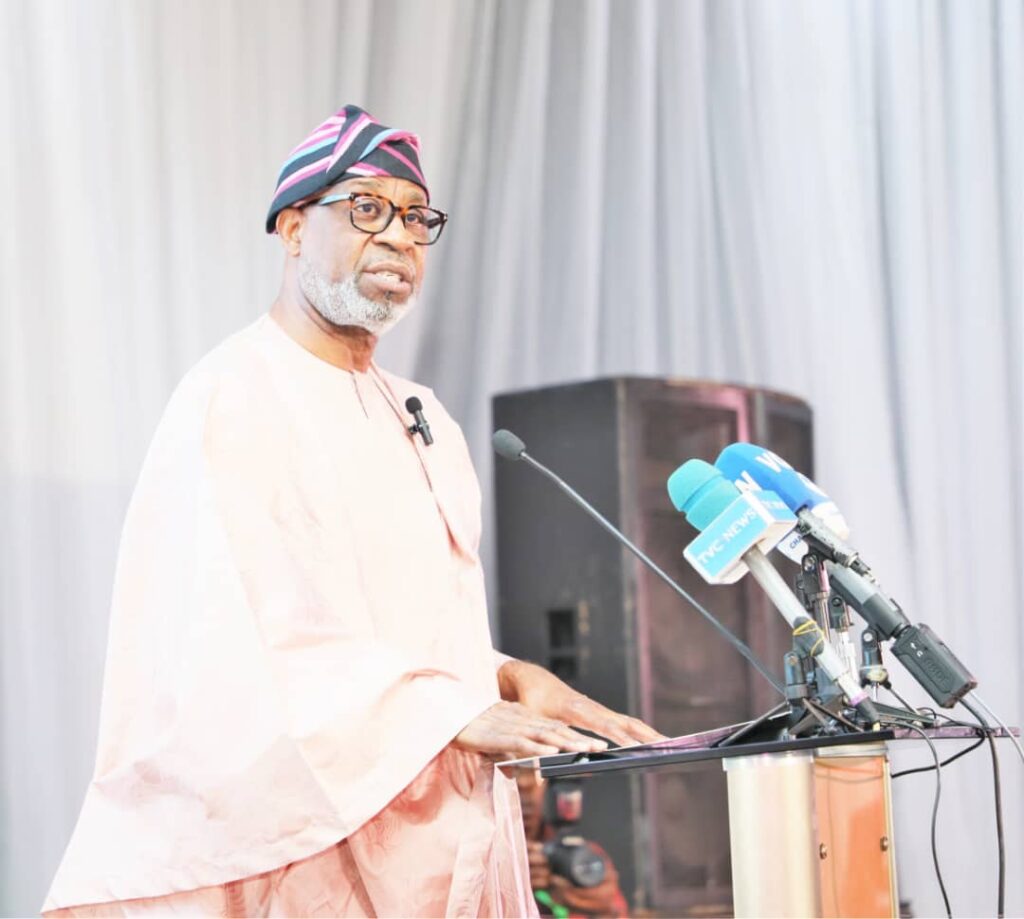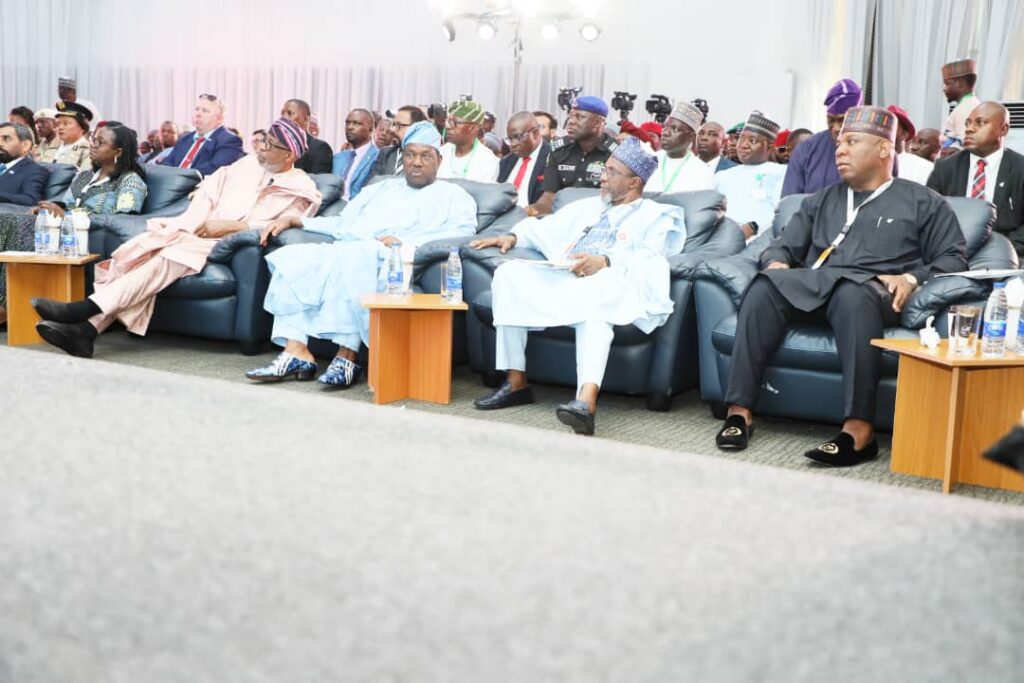President Bola Ahmed Tinubu has stated that his administration would do everything possible to make the solid minerals sector the largest revenue earner for Nigeria the same way the petroleum sector has been doing for years.

The President disclosed this while speaking at the opening ceremony of the ongoing 3-day second edition of the African Natural Resource and Energy Investment Summit, AFNIS, themed: “Towards a Just Transition” on Tuesday in Abuja, where he affirmed his administration’s commitment to tackle all challenges responsible for the dwindling fortunes of the sector over time.
Tinubu who was represented by the Secretary to Government of the Federation, SGF, George Akume, said, “Our administration shall wake up the sleeping giant that the solid minerals sector is today to play its strategic role in the economy by providing jobs for our people, improving the revenue acruable to the government, and establishing an industrial sector that is the envy of the world. , “Our administration shall wake up the sleeping giant that the solid minerals sector is today to play its strategic role in the economy by providing jobs for our people, improving the revenue acruable to the government, and establishing an industrial sector that is the envy of the world.”
“Nigerians did it with the petroleum sector against the odds; petroleum became our largest source of revenue. We shall do it again with the solid minerals sector, wiser and better, because we have learnt useful lessons.”
“The challenges of the sector are enough to overwhelm investors. The indiscriminate and illegal mining of richly endowed regions cheat our country of vast revenue; the threat of bandits oppressing villagers and exploiting the mines to raise money for insurgency is a national emergency; the lack of comprehensive and certified data to guide investment financing starves the sector of critical funds; the allegations of sharp practices in the licensing process undermines our commitment to transparency.

“These challenges and more are well known to this administration. Let me assure you that these difficulties to ease of doing business in this sector are being tackled by our administration.”
Highlighting some of the steps being taken to move the sector forward, including the proposed National Solid Minerals Company, investment in ‘Big Data’, the formalisation of artisanal miners into co-operatives, President Tinubu appealed to state authorities to
observe the exclusive jurisdiction in which mineral development falls and therefore avoid undue interference in legitimate mining operations within their territory.
“We must do everything possible to lower the risks of investment by overcoming the temptation to interfere in the legitimate business operations of duly licenced miners in the states,” he said.
Declaring the event open earlier, Minister of Solid Minerals Development, Oladele Alake, commended the theme as most apt and timely, challenging all to embrace the energy transition going on around the world currently, seize the opportunities it presents for innovation, job creation, and a healthier planet.
He said, “Nigeria, with its vast energy potential, is poised to play a pivotal role in this journey. We must work collaboratively to diversify our energy sources, promote renewable energy, and implement energy efficiency measures.

“The just transition demands that we address the social and economic challenges that may arise from shifting away from traditional energy sources. We must invest in workforce retraining, creating alternative employment opportunities, and supporting impacted communities. Africa must adopt policies that provide a safety net for those who might be negatively affected by this transition.
“We should establish a framework for cooperation that allows for the exchange of best practices and expertise among African Nations, promoting unity and the achievement of common goals.”
He reiterated the commitment of Nigeria to a just transition by leveraging the vast critical mineral resources underground that are indispensable for green energies such as electric vehicle batteries, renewable energy systems, and energy-efficient as well as Info-Tech applications not to only drive economic growth but also to contribute significantly to global efforts to combat climate change.
On his part, Minister of Steel Development Prince Shuaibu Abubakar Audu, who spoke much later, harped on the need for Africa and indeed Nigeria to take advantage of the potentials of the huge reserve of the transition metals through value addition locally as the demand for the metals, crucial in the development of green technologies, has surged globally.
“The key lies not only in extracting these metals but in harnessing our capabilities to refine and produce them locally. Doing so is an opportunity to foster economic growth, create jobs, and maintain control over our resource value chain,” he said.

To achieve this, he urged seamless collaboration among all stakeholders including the national and and sub-national governments, even as he called for a commitment to sustainability, incorporating responsible mining practices, and environmentally friendly production techniques to mitigate any adverse impact on our ecosystem.
Prince Audu equally outlined some pathways in line with the 8-point agenda of Mr. President and the proposed roadmap for the ministry of steel development including, enforcement of local processing of Ore, ensuring a secure operational environment, setting up of Host Community Minerals Development Fund, etc.



